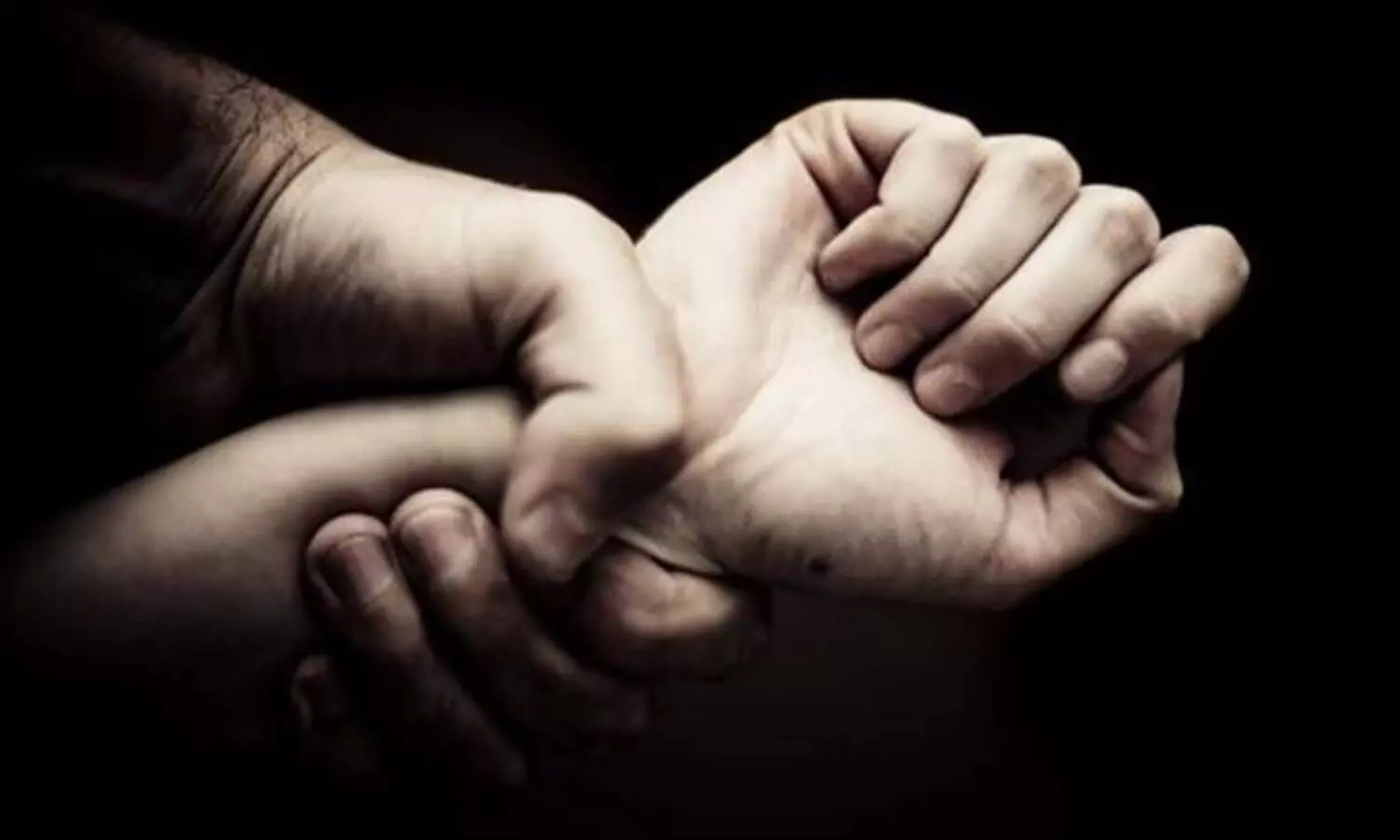'Kicked', 'dragged', 'forced sex': 35% married women in AP experience physical, and sexual abuse
In AP, 34 percent of women aged 18-49 have experienced physical violence, and 3 percent have experienced sexual violence. The most common perpetrator was the current husband for ever-married women who experienced physical violence since age 18.
By Sri Lakshmi Muttevi
Andhra Pradesh: Thirty-five percent of ever-married women aged 18-49 in Andhra Pradesh have experienced physical or sexual violence, National Family and Health Survey (NFHS-5) revealed.
NFHS provides information on India's population, health, and nutrition of each state/Union Territory (UT). NFHS-5 has collected information on domestic violence from women aged 18-49 related to behaviors of their husbands that cause physical, sexual, or emotional harm, including physical violence, emotional abuse, and controlling behaviors.
In Andhra Pradesh, 34 percent of women aged 18-49 have experienced physical violence, and 3 percent have experienced sexual violence. The most common perpetrator was the current husband for ever-married women who experienced physical violence since age 18.
Violence during pregnancy:
4%of women aged 18-49 years who have ever been pregnant have experienced physical violence during one or more of their pregnancies. Women with less than five years of schooling (12%), women with 3-4 children (6%), and women who are widowed, divorced, separated, or deserted (8%) have experienced violence during pregnancy.
Spouse Violence
In Andhra Pradesh, 30 percent of married women aged between 18-49 years have experienced any form of physical violence committed by their husband, 4 percent have experienced any form of sexual violence committed by their husband, and 15 percent have experienced any form of emotional violence committed by their husband. 27% of married women report they have been slapped by their husbands. 11% report being pushed or having something thrown at them, being kicked, dragged, or beaten up, and 8% experienced having their arm twisted and being punched with a fist or something that could hurt them.
Three percent of ever-married women aged 18-49 report that their husbands had physically forced them to have sex even when they did not want to, and 2 percent report that their husbands forced them with threats or any other way to perform sexual acts they did not want to perform. Overall, 30 percent of ever-married women have experienced spousal physical or sexual violence from their current husband or, if not currently married, from their most recent husband.
According to the report, spousal violence prevails across all groups. It is comparatively lower among more educated women. 1 in 5 women who have at least 12 years of schooling has experienced emotional, physical, or sexual spousal violence. The experience of spousal violence is higher among widowed women (50%) than currently married women (31%); and among women who are employed (39%) than women who are not employed (28%).
Influence of alcohol:
According to the NHFS, women are more likely to experience spousal violence if their husband gets drunk often. The study saw that 76% of husbands are often drunk, 69% display 3-4 marital control behaviors, and 43% get drunk sometimes.
Injuries by the husband:
The survey revealed that about 24% of ever-married women aged 18-49 who have ever experienced physical or sexual violence reported suffering from injuries from what their husbands did to them. The most common injuries they have experienced are physical or sexual violence, such as cuts, bruises, eye injuries, sprains, burns, and deep wounds.
Need for help:
In Andhra Pradesh, only 10% of women aged 18-49 who have ever experienced physical or sexual violence sought help. Eight in ten women never sought help and never told anyone.
What does WHO say?
According to the World Health Organization, violence against women, mainly domestic or spousal violence, is a significant public and clinical health problem and a violation of women's human rights, reflecting the scale of gender inequality and discrimination against women. The consequences of violence on physical, mental, sexual, and reproductive health often last a lifetime.